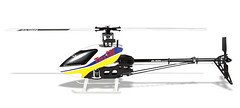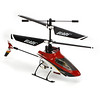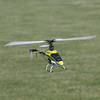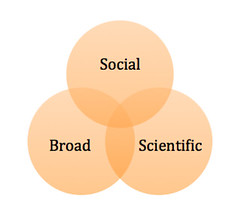The best worst hobby
 Wednesday, May 18, 2011 at 10:13AM
Wednesday, May 18, 2011 at 10:13AM (Here's a fun little story I thought I'd take a chance and share. I hope you enjoy it. -- matt)
If you ask around about having a hobby, many people will say it's a good idea. Dig further and I bet you find that 90% don't have one themselves - too busy. There is plenty of advise on the web about they're being beneficial, though (develops the brain, relieves stress, are fun, etc.) - such as Importance of hobby and Benefits Of Having A Hobby. As an adult I've never had one, but a recent slump got me thinking about starting one. (I mountain bike but that doesn't count. Here's a riddle: What's the difference between a sport and a hobby? One makes you get plumper the more you do it ;-) I wanted a challenge, and I've always been fond of helicopters (probably influenced by having a VertiBird as a kid), so I thought I'd jump into remote control models. The story reads like a drug habit.
I bought a Blade mCX2 RTF (a tiny hobby-grade coaxial heli complete with batteries, charger, and transmitter - AKA "Ready To Fly") and absolutely loved it. (Amazon link here.) These are hobby grade ones that are far better than the inexpensive toys you can find at big box stores (more fun, more durable, and finer control).
 I absolutely loved it. Zipping around our kitchen, practicing different orientations (tail-in, nose-in, side-in), precision landings, and staging rescues - great fun. At the same time my brother and I decided to buy the Phoenix RC flight simulator. As a Mac user I had to upgrade Boot Camp, buy and install Windows, then install Phoenix. Not for the faint of heart, but I was motivated. The graphics and physics are stunning, we play online at night, and it's a hoot, not to mention a comfortable way to stay in touch.
I absolutely loved it. Zipping around our kitchen, practicing different orientations (tail-in, nose-in, side-in), precision landings, and staging rescues - great fun. At the same time my brother and I decided to buy the Phoenix RC flight simulator. As a Mac user I had to upgrade Boot Camp, buy and install Windows, then install Phoenix. Not for the faint of heart, but I was motivated. The graphics and physics are stunning, we play online at night, and it's a hoot, not to mention a comfortable way to stay in touch.
After lots of research, I decided to take the plunge and buy a full collective pitch helicopter, and here's where we get into my title. "CP" helis are:
- Complex machines,
- extremely difficult to fly (100 hours on the simulator before I could do it confidently),
- expensive, and
- easy to break.
Needless to say, it's not for everyone. It's also why you'll see one helicopter pilot for every dozen or so airplane ones. You'll know the former by the tears. I again decided on RTF, this time a Blade 400.
Flying these is exhilarating and frightening. The sound they make spinning up usually causes your taking a few steps back, and controlling one is a rush. All that simulator work paid off, but it was still hard to control, and I crashed it twice (the first on only my fifth flight), which moved me from the hobby's challenge of flying to the the inevitable need to learn how to repair them. Again, not for the faint of heart. Fast forward two more crashes and painful, expensive repairs, and I know had the RC heli bug pretty bad, leading to my next step of...
 ... buying an ALIGN T-REX 450 Pro Super Combo. This is the industry standard for high-performance CP helis, and comes as a kit. Putting it together was another major challenge (it took me two weeks, lots of tools, and many mistakes lessons), but I got it together and set up, and amazingly - it flew! I had my new helicopter friend John fly it for me, and what a reward seeing the result of transforming a box of 200+ parts into a mechanical marvel. A very important side benefit is the feeling of a tangible, relatively short term success, especially with a string of multi-year challenges and struggles under my belt.
... buying an ALIGN T-REX 450 Pro Super Combo. This is the industry standard for high-performance CP helis, and comes as a kit. Putting it together was another major challenge (it took me two weeks, lots of tools, and many mistakes lessons), but I got it together and set up, and amazingly - it flew! I had my new helicopter friend John fly it for me, and what a reward seeing the result of transforming a box of 200+ parts into a mechanical marvel. A very important side benefit is the feeling of a tangible, relatively short term success, especially with a string of multi-year challenges and struggles under my belt.
I had my first destined crash of my T-rex yesterday, and the Blade 400 is still on the bench, but that thrill of flying keeps me going. To be in control of one of these good-sized "birds" zipping past me is such a thrill that it makes me actually giggle a tiny bit, and that's a gift. They're expensive, complex, and difficult machines, but I'm hooked. A few success factors are having a local hobby shop (yes they still exist), getting to know local people who fly rc helicopters (I discovered the old-school activity of rc flying clubs - definitely a new experience for me), and utilizing the many smart and helpful folks in online forums. I'm fortunate to have been able to try this hobby, for which I'm profoundly grateful.
I'm curious
- Do you have a hobby?
- What is it, and what's your story?
- If not, what's holding you back? In my case it took some searching before I found something that sucked me in. In fact my 10 year old daughter suggested I look through our library's non-fiction section for inspiration, which worked.








